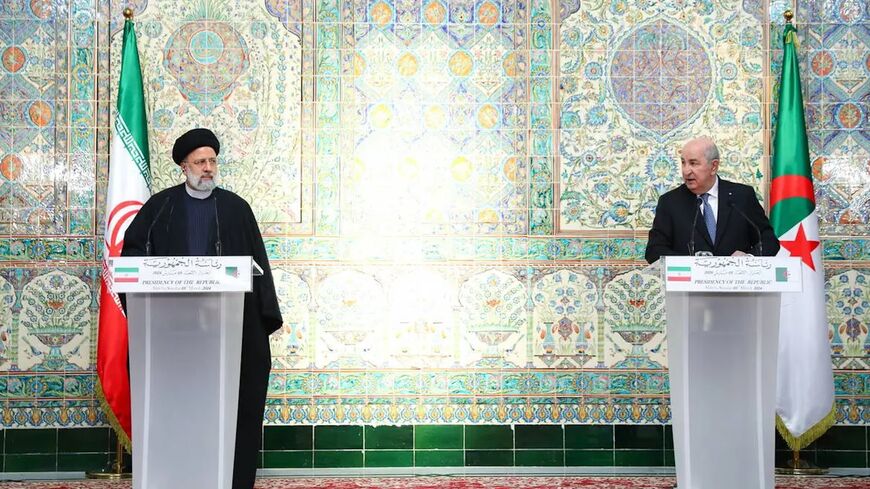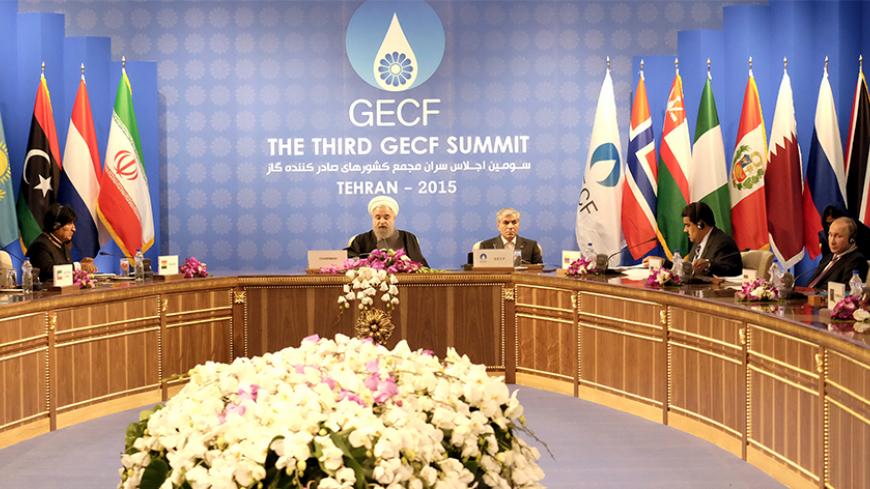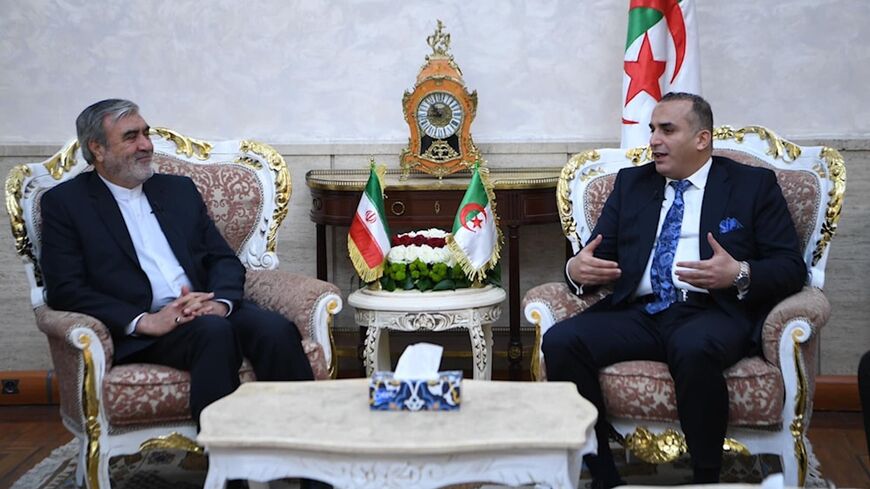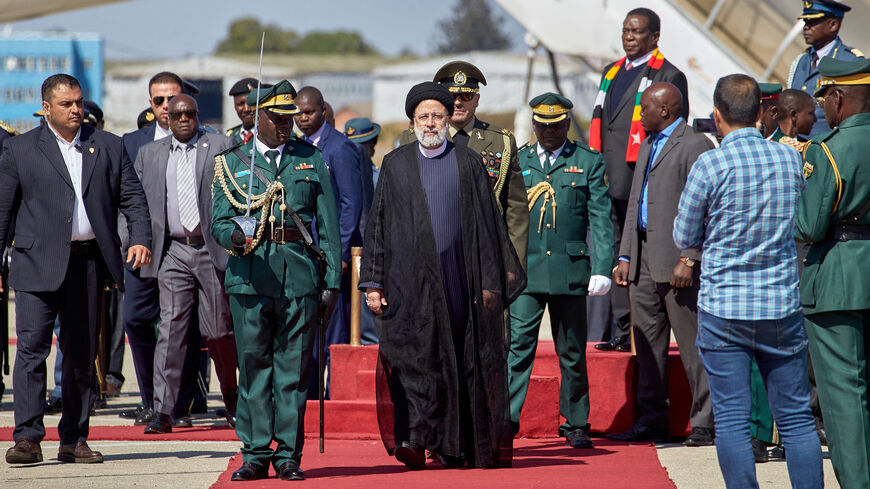Iran’s Raisi to make first visit to Algeria in 14 years as Africa ties grow
Algeria has maintained friendly ties with Iran as Tehran faces growing Western isolation.

Iran’s President Ebrahim Raisi is heading to Algeria this weekend for a two-day visit in the first official trip by an Iranian president to the North African country in 14 years.
Raisi will participate in the 7th Summit of Heads of State and Government of the Gas Exporting Countries Forum on Saturday in Algiers, the official Iranian news agency IRNA said on Wednesday.
On the second day of his trip, the Iranian leader is scheduled to meet with Algerian President Abdelmadjid Tebboune and is expected to oversee the signing of bilateral agreements.
According to IRNA, Raisi’s visit comes upon an official invitation by Tebboune. The last time an Iranian president visited Algeria was in September 2010, when President Mahmoud Ahmadinejad made a brief stop in the Algerian capital.
The forum is an intergovernmental organization made up of the world's leading gas exporting countries, namely Algeria, Bolivia, Egypt, Equatorial Guinea, Iran, Libya, Nigeria, Qatar, Russia, Trinidad and Tobago, the United Arab Emirates and Venezuela. The organization was officially established in its current form in December 2008, based on a proposal first put forward by Iran in 2001.
Iran currently holds the world’s second-largest natural gas reserves after Russia, estimated at 33,988 billion cubic meters, according to OPEC. Algeria holds 4,504 billion cubic meters of natural gas reserves, placing it the 10th on the world map.
Raisi’s visit comes as Iran is seeking to bolster relations across the African continent as it grows more isolated internationally.
Iran restored its relations with Sudan in October 2023 after a seven-year rupture. Iranian Foreign Minister Hossein Amir-Abdollahian visited Khartoum earlier this month, just as Bloomberg reported that Iran was supplying Iranian-made drones to the Sudanese military in its fight against paramilitary forces.
In July 2023, Raisi embarked on an African tour that took him to Kenya, Uganda and Zimbabwe, where he signed a total of 21 agreements in various sectors, including oil and energy.
Iran’s outreach to Algeria
Iranian-Algerian relations have had a rocky history. Algeria severed its diplomatic ties with Iran in 1993 after accusing Tehran of backing the Islamist opposition fighting the Algerian government at the time. Relations were restored in 2000. Since then, the two countries have worked to deepen their ties in various fields.
Dozens of agreements have been signed between the two countries in the past decades. In 2016, Algiers and Tehran inked 15 cooperation and partnership agreements in the automotive industry. In 2010, 11 memorandums of understanding were signed in different fields including agriculture, civil, trade, health, higher education and scientific research.
During a visit by Algerian Foreign Minister Ahmed Altaf to Tehran in July 2023, the two countries agreed to end the need for political visas and soon stop requiring visas for any travelers.
Speaking at a press conference at the time, Iranian Foreign Minister Hossein Amir-Abdollahian said Iranian-Algerian ties were “on the right track” and expressed his country’s readiness to expand bilateral cooperation in the fields of science and technology, agriculture, medicine and medical equipment, tourism, industry and mining.
On the trade level, Iran exported $1.134 million worth of non-oil goods to Algeria between March and June 2023, marking a 109% increase compared to the same period the previous year, according to the Iran and African Continent Merchants Club, an Iranian-based private sector business organization that seeks to boost business relations with Africa. Iranian exports to Algeria amounted to $67.4 million in 2021, according to the United Nations' COMTRADE database.
Algerian officials have also repeatedly and publicly supported Iran’s right to develop nuclear energy for civilian purposes.







